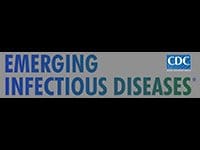By Megan Brooks
NEW YORK (Reuters Health) Jun 22 - For young women with a history of recurrent urinary tract infection (UTI), antibiotic therapy for asymptomatic bacteriuria is unnecessary and harmful, clinicians from Italy warn.
In a large prospective study, women with recurrent UTI who received antibiotics when found to have asymptomatic bacteriuria "showed a higher rate of recurrences when compared with the untreated group," Dr. Tommaso Cai, from Santa Chiara Hospital, Trento, told Reuters Health by email.
"Moreover, we demonstrated that in the treated group there was a clear shift towards Gram-negative organisms and in the untreated group towards Gram-positives," especially Enterococcus faecalis, Dr. Cai noted.
"The results of our study provide a clear answer: the antibiotic treatment of asymptomatic bacteriuria in young otherwise healthy women, with history of UTI is not only unnecessary but also dangerous," Dr. Cai said.
Asymptomatic bacteriuria is generally present in 3% to 5% of young healthy women, the study team notes in a report online June 7 in Clinical Infectious Diseases. Yet, little is known about its role in young women with recurrent UTI and the impact of treatment.
The researchers enrolled 673 consecutive young, sexually active women with recurrent UTI and documented asymptomatic bacteriuria in a prospective trial; 312 women received no antibiotic therapy (Group A) while 361 were treated with antibiotic (Group B) -- most often fosfomycin-trometamol (31.4%), nitrofurantoin (26.8%), cotrimoxazole (19.8%), ciprofloxacin (13.1%) and levofloxacin (8.9%).
At baseline, there was no difference between the two groups in clinical or microbiological parameters. The two most commonly isolated pathogens at baseline were Escherichia coli (Group A, 38.4% and Group B, 39.3%) and E. faecalis (32.7% and 33.2%, respectively).
Antibiotic treatment of asymptomatic bacteriuria was associated with a higher rate of symptomatic UTI over one year, Dr. Cai and colleagues report. At the last follow-up, 41 (13.1%) in Group A and 169 (46.8%) in Group B showed recurrence (relative risk 3.17; p<0.0001).
The study also found that antibiotic treatment shifts the bacterial spectrum, causing asymptomatic bacteriuria. In particular, antibiotic treatment of asymptomatic bacteriuria due to E. faecalis led to growth of multidrug resistant E. coli, regardless of the antibiotic used, the investigators report.
"We can hypothesize," Dr. Cai said, "that E. faecalis (could) be an important defense mechanism, which effectively interferes with the establishment of many important enteric pathogens, such as E. coli."
He said the take-home message is simple: "Do not treat young women with asymptomatic bacteriuria."
"I think our study is the first step for a change in everyday clinical practice," Dr. Cai added.
Dr. Florian Wagenlehner of Justus-Liebig-University in Giessen, Germany and Dr. Kurt Naber from Technical University in Munich, co-authors of a commentary, agree.
"Hopefully," they write, "the results of this study will be rapidly spread to all physicians treating such patients: the management of these patients could be improved; investigations for screening of ABU (asymptomatic bacteriuria) and antibiotic consumption could be decreased; not only cost but also antimicrobial selection pressure in the community and thus emergence of antibiotic resistance could be reduced."
Drs. Wagenlehner and Haber point out that during the last 50 years, well performed clinical and basic molecular studies have "changed our understanding" of asymptomatic bacteriuria completely." It is now considered a "generally benign and sometimes even protective condition."
"Not to treat ABU in general (except during pregnancy and before invasive intervention of the urinary tract) and especially not in young women with recurrent UTI as shown by Cai et al is highly recommended and should become standard of care," they conclude.
SOURCE: http://bit.ly/MbHxLJ
Clin Infec Dis 2012.
Reuters Health Information © 2012











Comments